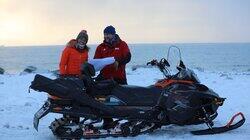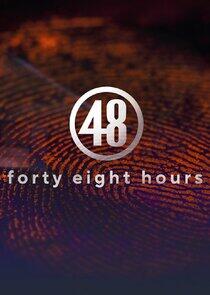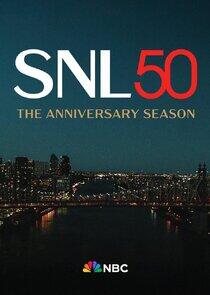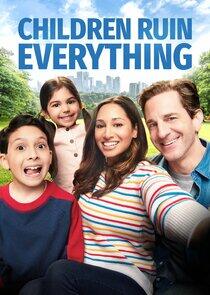Episode 2

It was during the Ice Age that humanity as we know it was forged. Two rival species competed until only one was left standing. Steve Backshall and Michaela Strachan travel the world to discover how Neanderthals and Homo sapiens survived at a time of brutal environmental change and uncover why we, Homo sapiens, survived while the Neanderthals were wiped off the face of the Earth. Steve heads to southern Germany, which is a hotbed of early human discoveries. In the freezing temperatures of the snow-lined valleys, Steve throws himself into Ice Age life, exploring how early humans evaded the mighty Ice Age predators such as the supersized cave bears and giant hyenas that stalked the freezing wastelands. In a battle against the elements and predators, Steve discovers how Neanderthals made fire in a surprisingly sophisticated way and crafted tools so sharp you could shave with them! Meanwhile, Michaela gets to grips with the differences between Neanderthals and Homo sapiens. At the prestigious Natural History Museum, she's able to see that Neanderthals were physically stronger than Homo sapiens and by looking at their skulls can see they even had bigger brains. So why then did we as a species survive and the Neanderthals did not? The answer could lie in how both species developed technology. Steve tests out the differences between how Neanderthals and Homo sapiens hunted mega-beasts like the woolly mammoth. He tries throwing Neanderthal spears, but discovers that Homo sapiens developed a better way to hunt. Meanwhile, Michaela uncovers how one invention, the humble sewing needle, gave Homo sapiens a huge advantage — why? But the biggest turning point in our species evolution came as the Ice Age thawed and a natural disaster loomed, one that threatened to wipe out the Neanderthals.
Trailer
Recently Updated Shows

Neighbours
The continuation of the long-running daily drama series—about the lives, loves, and challenges of the residents on Ramsay Street in Erinsborough, Australia, a fictional suburb of Melbourne.

48 Hours
48 Hours is a CBS news magazine that investigates intriguing crime and justice cases that touch on all aspects of the human experience. Over its long run, the show has helped exonerate wrongly convicted people, driven the reopening -- and resolution -- of cold cases, and changed numerous lives. CBS News correspondents offer an in-depth look into each story, with the emphasis on solving the mystery at its heart. The program and its team have earned critical acclaim, including 20 Emmys and three Peabody Awards.

Saturday Night Live
Saturday Night Live is an Emmy Award-winning late-night comedy showcase.
Since its inception in 1975, "SNL" has launched the careers of many of the brightest comedy performers of their generation. As The New York Times noted on the occasion of the show's Emmy-winning 25th Anniversary special in 1999, "in defiance of both time and show business convention, 'SNL' is still the most pervasive influence on the art of comedy in contemporary culture." At the close of the century, "Saturday Night Live" placed seventh on Entertainment Weekly's list of the Top 100 Entertainers of the past fifty years.

Children Ruin Everything
Children Ruin Everything is one couple's efforts to reclaim a piece of their old lives which are continually thwarted by their young children in surprising and absurd ways. But somewhere in the toy-filled, pee-stained wreckage of what they once had, they find a new life that's pretty good, too.
